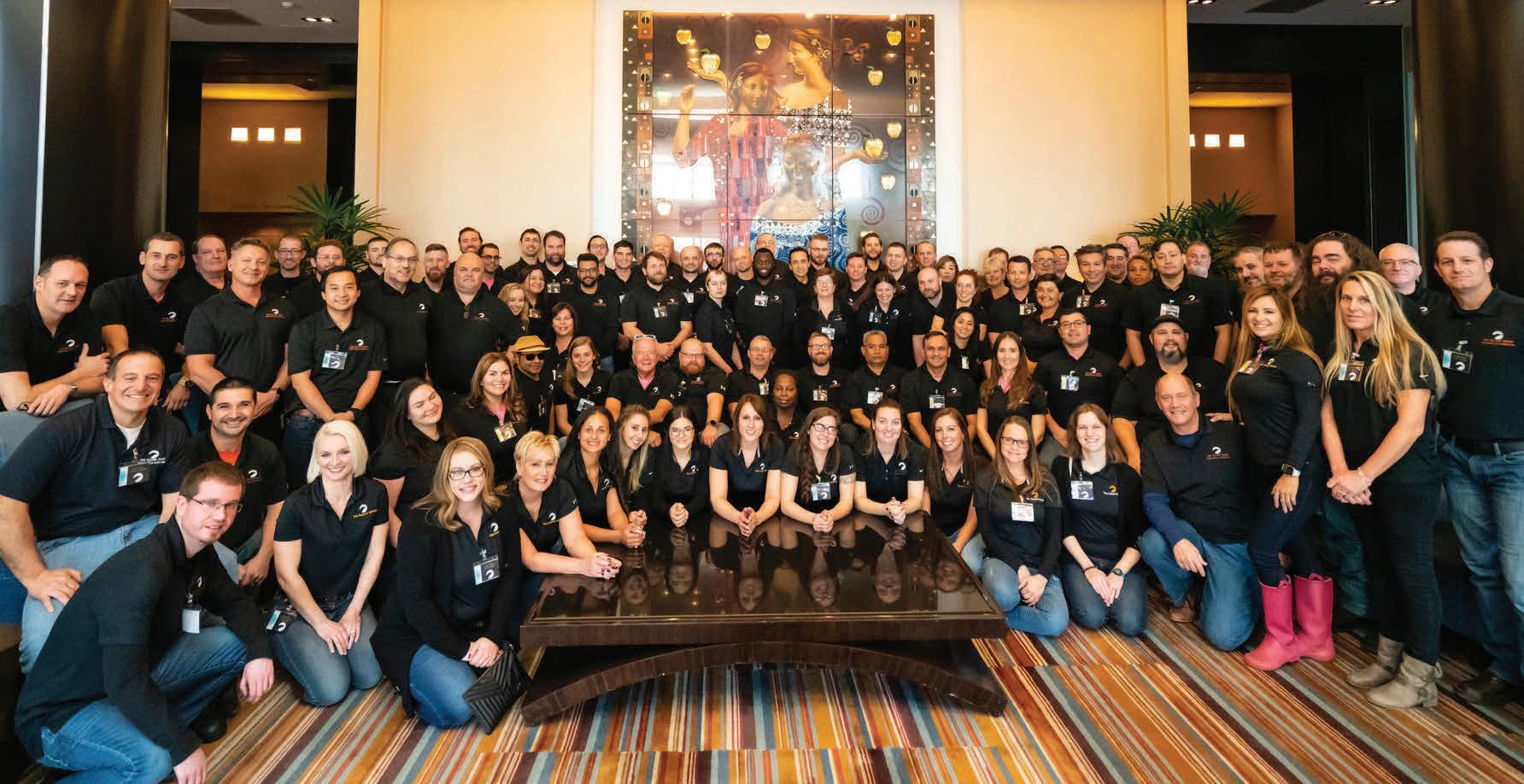
5 minute read
Meeting Stress Head On
Allie is a medical intuitive specializing in helping clients overcome long-standing emotional self-sabotage so they can enjoy their work and see more clearly the good they contribute to the world. You can check out her work at allieduzett.com and she is highly contactable at allie@allieduzett.com.
Meeting StressHEAD ON
Advertisement
You’re sitting in this meeting trying not to let your face betray you. The people here are CRAZY. And worse, they do NOT understand what is actually going on in the community behind the scenes.
They don’t know how hard you work, they don’t understand the community budget, and they seem to have no boundaries at all—it feels like everything they are saying is a personal attack on the community, on the board, and on YOU.
Take a deep breath! These are some tips you can use to keep your cool in the middle of massively stressful meetings.
1. Breathe more deeply. Humans NEED air to survive--and lots of it. When we are oxygen deprived, our bodies can go into a fight, flight, or freeze state--and when we are chronically oxygen deprived, this chronic stress response can present similarly to anxiety and depression. Americans tend to breathe very shallowly, and masks are just one more barrier to breath. In a meeting when you’re losing your cool, take some time to just focus on your breath and see how your emotional state changes.
ARCHITECTURE & ENGINEERING SERVICES: CIVIL • STRUCTURAL • MEP


CAPITAL RESERVE STUDIES
CONSTRUCTION DEFECT TESTING | INVESTIGATION
ENERGY CONSULTING
FORENSIC TESTING | LITIGATION SUPPORT
TRANSITION REPORTS
www.falconengineering.com info@falconengineering.com (240) 328-1095 7361 Calhoun Place, Suite 325 Rockville, MD 20855



HEAD ON


This is a good thing to try before meetings, too. Or, when you wake up, when you go to sleep, focusing on filling your whole belly with air slowly and feeling that air do its work before letting it go. Over time, you may be astonished at how your physical AND emotional health improve with more oxygen in your system.
2. Visualize light. Hang with me. I know it might sound silly, but this visualization can really work if you try it. When people around you start attacking you or otherwise stressing you out, imagine yourself fully encased in a ray of sunshine straight from the Sun. Imagine this tube of light working like a shield: all the negativity from the people around you gets neutralized as soon as it makes contact with your space. If you’ve never visualized before, it might feel a little strange at first, but as you experiment with this you will find that it really does make you feel safer and calmer in the middle of meetings.
3. Write it out. Write out how you and others deserve to be treated- -yes, on a piece of paper, with a real-life pen or pencil. Write down that you (and all people) deserve to be treated with respect and kindness. Write down the behaviors that you will no longer tolerate because they are a violation of fundamental boundaries. This would include things like verbal and physical abuse, and emotional blackmail. Write out how an emotionally mature person like yourself will handle these behaviors in the future. Will you calmly remind others that you are not responsible for their feelings? Will you deflect their attempts at blackmail kindly but firmly? In the case of physical abuse or threats of physical abuse, will you call security or the police as appropriate? Take some time to really think about appropriate boundaries and how to enforce the core value of respect in your life and the lives you touch with yours. How will you be a voice for respect in every situation? Think about it and make a thoughtful plan.
4. Let go of anger, blame, shame, and guilt. This could take up a whole book to explore, but the fact remains that it’s hard to have strong, respectful boundaries when we are festering with anger, blame, shame, and guilt of our own. These are the feelings that lead us to become both emotional blackmailers and the emotionally blackmailed. When we let go of these feelings, we are in a much calmer place: it feels much more doable to have strong boundaries. My favorite technique to let go of these sorts of things is outlined in this 7-minute video here: tinyurl.com/scribbletechnique.
5. Remember that it’s not about you. No one’s reactions to you are EVER about you. They are ALWAYS about the person reacting. Imagine you have two dollars out on a table. A person comes up and takes them without asking. Now imagine those are your only two dollars in the whole world and you have no idea how you will get those dollars back. Imagine the rage and anger and panic and worry and nervousness--you need those two dollars! That’s all you have! But now imagine that in the back room you have a million dollars, in cash. Your very own Scrooge McDuck vault of cash. If someone takes two dollars from you, who cares?
We all have our two dollars out on the table, all the time--emotionally. For some of us, that’s all we’ve got--and for others of us, we’ve got a million more emotional “bucks” in the back room. For someone who is struggling in their life in general, anything negative that happens to them will set them off. For someone who has plenty of emotional security in their life, very little will ruffle their feathers.
When people snap at you at a meeting, sometimes it can help to remember that the REAL issue here is NOT the deadline, and it’s NOT the color of the window shutters, and it’s NOT even the money or you personally. When people are upset, it is ALWAYS a reaction to what is going wrong with them in their own hearts.
Remembering this helps us all stay in a place of compassion when I’m working with difficult people, and it helps me remember to prioritize my own emotional health so that I never feel like my last two dollars in the world have been ripped away from me. The people who are the worst to deal with are already coming from a negative place: it is not your fault. You are the person they are coming to for help – and you can do this!








